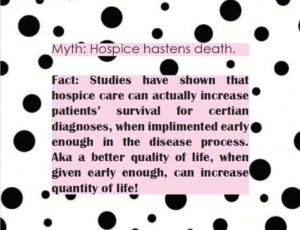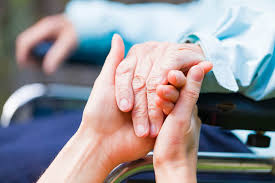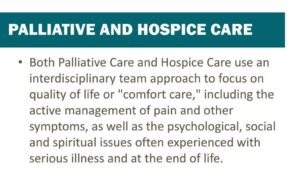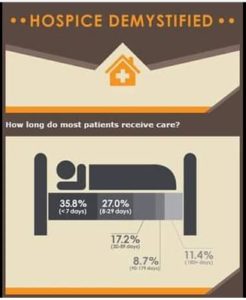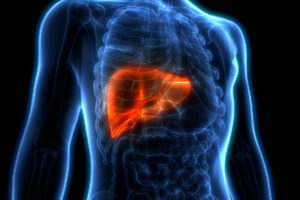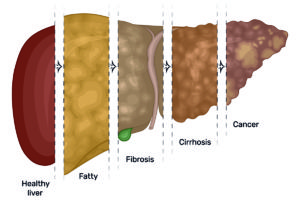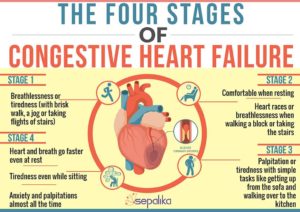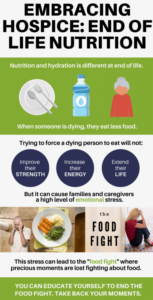“Hospice is a comprehensive, holistic program of care and support for terminally ill patients and their families. Hospice care changes the focus to comfort care (palliative care) for pain relief and symptom management instead of care to cure the patient’s illness.” CMS definition (source) here.
Merriam-Webster defines hospice as “a program designed to provide palliative care and emotional support to the terminally ill in a home or homelike setting so that quality of life is maintained and family members may be active participants in care.”
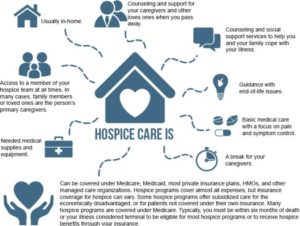
Whichever definition you choose to describe hospice care, it all means the same thing- holistic help for the patient and family. At St. Anthony’s Hospice, our definition includes all of the above plus 15 months of bereavement care once the patient passes away. And our bereavement services are not only for family/caregivers of St. Anthony’s patients. Anyone in our community can engage in bereavement counseling and support groups to help get through the tough time after a loss. If you are interested in bereavement services, please call Thomas Emerson, Bereavement Counselor, at (270) 826-2326.
As far as the medical side to St. Anthony’s Hospice care, a specialized interdisciplinary team consisting of a medical director, nurse practitioner, nurse, chaplain, social worker, aide, and volunteer surrounds the patient and their family to ensure all needs are being met. This team works to manage the 5 types of pain- physical, spiritual, social, financial, and psychological, so the patient and family are receiving superb care to increase quality of life. Each member of the patient’s care team is expertly trained to meet all needs of the patient. Your care team assists with pain and symptom control, medication management, bathing, companionship, wound care, and so much more. In addition to the expert care, patients on hospice receive durable medical equipment, medical supplies, and medications related to their terminal diagnosis at no cost to them.
To give you a more in-depth picture of what the care team will do, keep reading! Our nurses will fill pill planners, educate caregivers on how to administer medications, provide wound care, and educate on the disease process. Our aides will assist in bathing the patient, as well as any grooming or everyday needs the patient may have. Our chaplains and social workers will help you work through any stress or negative emotions you might have. Our social workers can even help with funeral arrangements and legal documents such as Powers of Attorney, Living Wills, Do Not Resuscitate orders, etc.
Hospice care does not mean you are giving up on your loved one or even giving up on yourself, it is help for all! We want the patient to be comfortable and we want the family to be involved in their care and be comfortable in doing so.
If you or a loved one is in need of hospice or palliative care, please call us at (270) 826-2326 or make an online referral.

